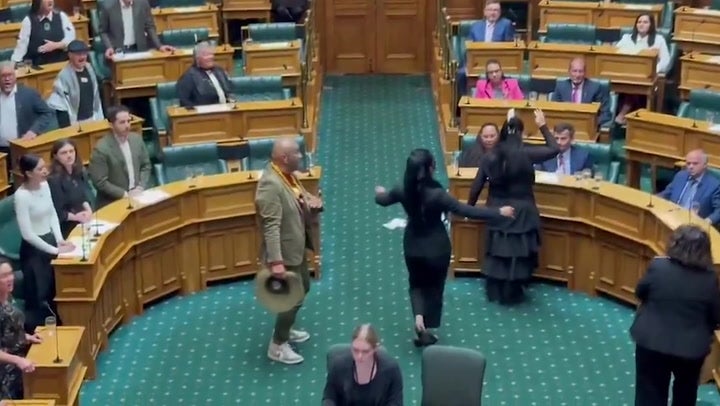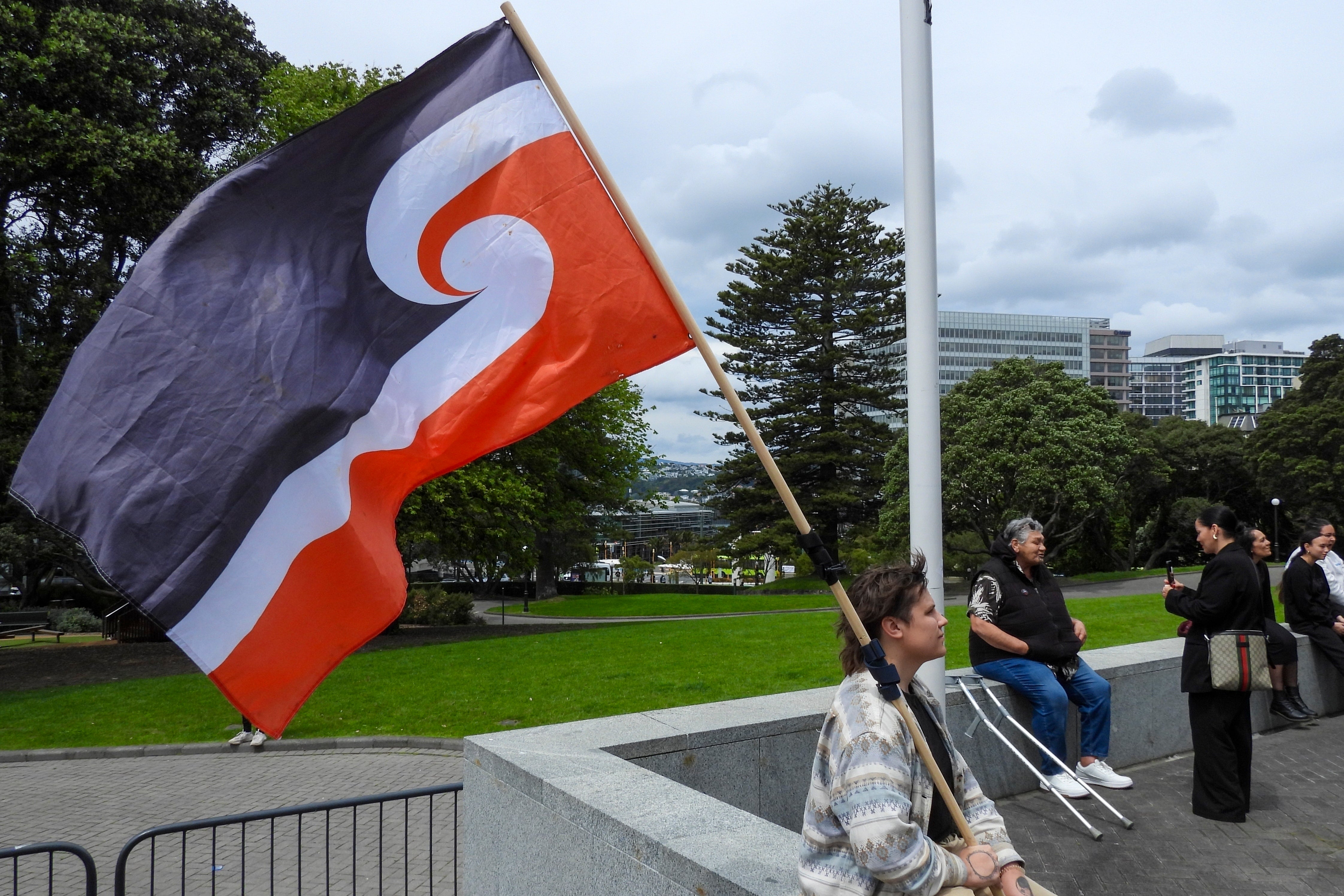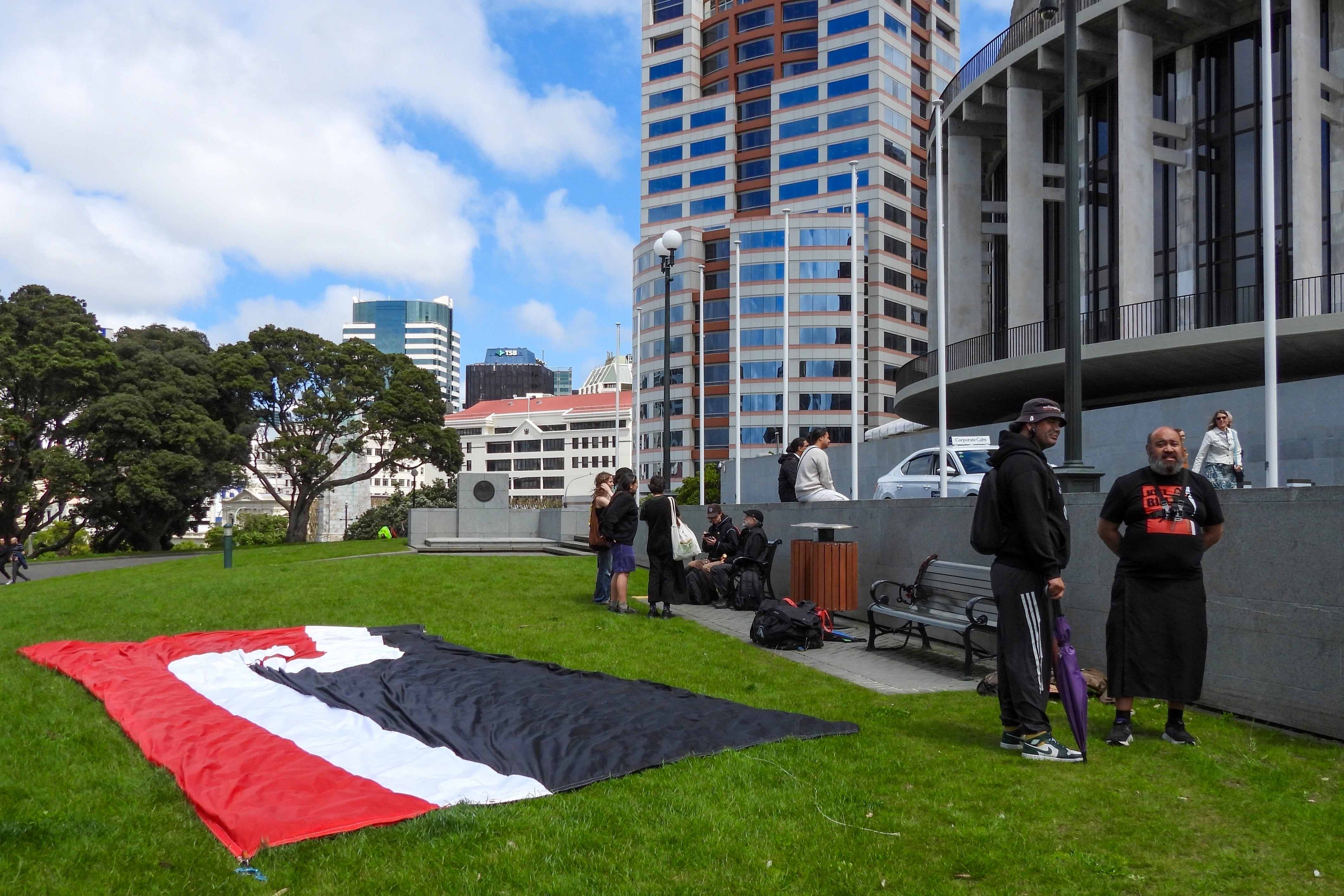Why New Zealand is seeing mass protests over Māori rights
New Zealand’s parliament was halted by politicians performing a haka

Your support helps us to tell the story
From reproductive rights to climate change to Big Tech, The Independent is on the ground when the story is developing. Whether it's investigating the financials of Elon Musk's pro-Trump PAC or producing our latest documentary, 'The A Word', which shines a light on the American women fighting for reproductive rights, we know how important it is to parse out the facts from the messaging.
At such a critical moment in US history, we need reporters on the ground. Your donation allows us to keep sending journalists to speak to both sides of the story.
The Independent is trusted by Americans across the entire political spectrum. And unlike many other quality news outlets, we choose not to lock Americans out of our reporting and analysis with paywalls. We believe quality journalism should be available to everyone, paid for by those who can afford it.
Your support makes all the difference.A proposed law that would redefine New Zealand’s founding treaty between the British Crown and Māori chiefs has triggered political turmoil in the country.
The bill is never expected to become law. But it has become a flashpoint on race relations and a critical moment in the fraught 180-year-old conversation about how New Zealand should honor its promises to Indigenous people when the country was colonized.
Tens of thousands are expected to throng the capital, Wellington, for the final stretch of the weeklong protest march on Tuesday. It follows a Māori tradition of hīkoi, or walking, to bring attention to breaches of the 1840 Treaty of Waitangi.
New Zealand’s parliament was temporarily halted by Māori politicians performing a haka in protest last week, in scenes that were seen around the world.
Considered New Zealand’s founding document, the treaty was signed between representatives of the British Crown and 500 Māori chiefs during colonization. It laid out principles guiding the relationship between the Crown and Māori, in two versions -– one in English and the other in Māori.

It promised Māori the rights and privileges of British citizens, but the English and Māori versions differed on what power the chiefs were ceding over their affairs, lands and autonomy.
Over decades, the Crown breached both versions. By the mid-20th century, Māori language and culture had dwindled -– Indigenous people were often barred from practicing it -- tribal land was confiscated and Māori were disadvantaged in many metrics.
Prompted by a surging Māori protest movement, for the past 50 years the courts of New Zealand, lawmakers and the Waitangi Tribunal -– a permanent body set up to adjudicate treaty matters -– have navigated the differences in the treaty’s versions and tried to redress breaches by constructing the meaning of the treaty's principles in their decisions.
Those principles are intended to be flexible but are commonly described as partnership with the Crown, protection of Māori interests and participation in decision-making.

While Māori remain disenfranchised in many ways, the weaving of treaty recognition through law and attempts at redress have changed the fabric of society since then. Māori language has experienced a renaissance, and everyday words are now commonplace -– even among non-Māori. Policies have been enacted to target disparities Māori commonly face.
Billions of dollars in settlements have been negotiated between the Crown and tribes for breaches of the treaty, particularly the widespread expropriation of Māori land and natural resources.
Some New Zealanders, however, are unhappy with redress. They have found a champion in lawmaker David Seymour, the leader of a minor libertarian political party which won less than 9% of the vote in last year’s election -– but scored outsized influence for its agenda as part of a governing agreement.
Seymour‘s proposed law would set specific definitions of the treaty’s principles, and would apply them to all New Zealanders, not only to Māori. He says piecemeal construction of the treaty’s meaning has left a vacuum and has given Māori special treatment.
His bill is widely opposed — by left- and right-wing former prime ministers, 40 of the country’s most senior lawyers, and thousands of Māori and non-Māori New Zealanders who are walking the length of the country in protest.
Seymour’s bill is not expected to pass its final reading. It cleared a first vote on Thursday due to a political deal, but most of those who endorsed it are not expected to do so again.
Detractors say the bill threatens constitutional upheaval and would remove rights promised in the treaty that are now enshrined in law. Critics have also lambasted Seymour -– who is Māori -– for provoking backlash against Indigenous people.
Peaceful walking protests are a Māori tradition and have occurred before at crucial times during the national conversation about treaty rights.
Police in the country of 5 million people say they expect 30,000 to march across Wellington to Parliament on Tuesday. Crowds of up to 10,000 people have joined the march in cities en route to Wellington.
Many are marching to oppose Seymour’s bill. But others are protesting a range of policies from the center-right government on Māori affairs -– including an order, prompted by Seymour, that public agencies should no longer target policies to specifically redress Māori inequities.